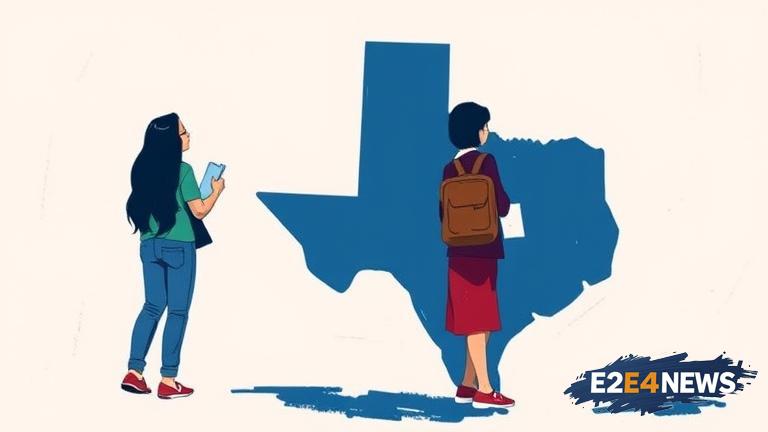A recent lawsuit in Texas has sparked concerns among undocumented students who may face a significant hike in tuition rates. The lawsuit, which challenges the Texas Dream Act, could lead to out-of-state tuition rates for these students. The Texas Dream Act, signed into law in 2001, allows undocumented students to pay in-state tuition rates if they meet certain requirements. However, the lawsuit claims that the law is unconstitutional and violates federal law. If the lawsuit is successful, undocumented students may be forced to pay out-of-state tuition rates, which can be up to three times higher than in-state rates. This could lead to a significant decrease in enrollment among undocumented students, as many may not be able to afford the higher tuition rates. West Texas A&M University, one of the institutions affected by the lawsuit, has already seen a decline in enrollment among undocumented students. University officials, including Rick Haasl and Bob Austin, have expressed concerns about the potential impact of the lawsuit on student enrollment and success. The lawsuit has also sparked concerns among educators and advocates, who argue that the Texas Dream Act has been instrumental in increasing access to higher education for undocumented students. The Texas Dream Act requires students to have graduated from a Texas high school, have lived in Texas for at least three years, and have applied for permanent residency. Students who meet these requirements are eligible to pay in-state tuition rates and receive state-funded financial aid. However, the lawsuit claims that the law is unfair to U.S. citizens and legal residents who do not qualify for in-state tuition rates. The outcome of the lawsuit is still uncertain, but it has already sparked a heated debate about the role of undocumented students in higher education. The Texas Higher Education Coordinating Board has reported a decline in enrollment among undocumented students, citing the lawsuit as a major factor. The board has also expressed concerns about the potential impact of the lawsuit on the state’s economy, as undocumented students who are unable to afford higher education may be less likely to contribute to the workforce. The lawsuit has also raised questions about the future of the Texas Dream Act and its impact on undocumented students. As the lawsuit moves forward, educators and advocates are urging lawmakers to take action to protect the rights of undocumented students and ensure that they have access to affordable higher education. The Texas Dream Act has been instrumental in increasing access to higher education for undocumented students, and its repeal could have significant consequences for the state’s economy and workforce. The lawsuit has sparked a national debate about the role of undocumented students in higher education, with some arguing that they should be eligible for in-state tuition rates and others arguing that they should not. The outcome of the lawsuit will have significant implications for undocumented students in Texas and across the country.
